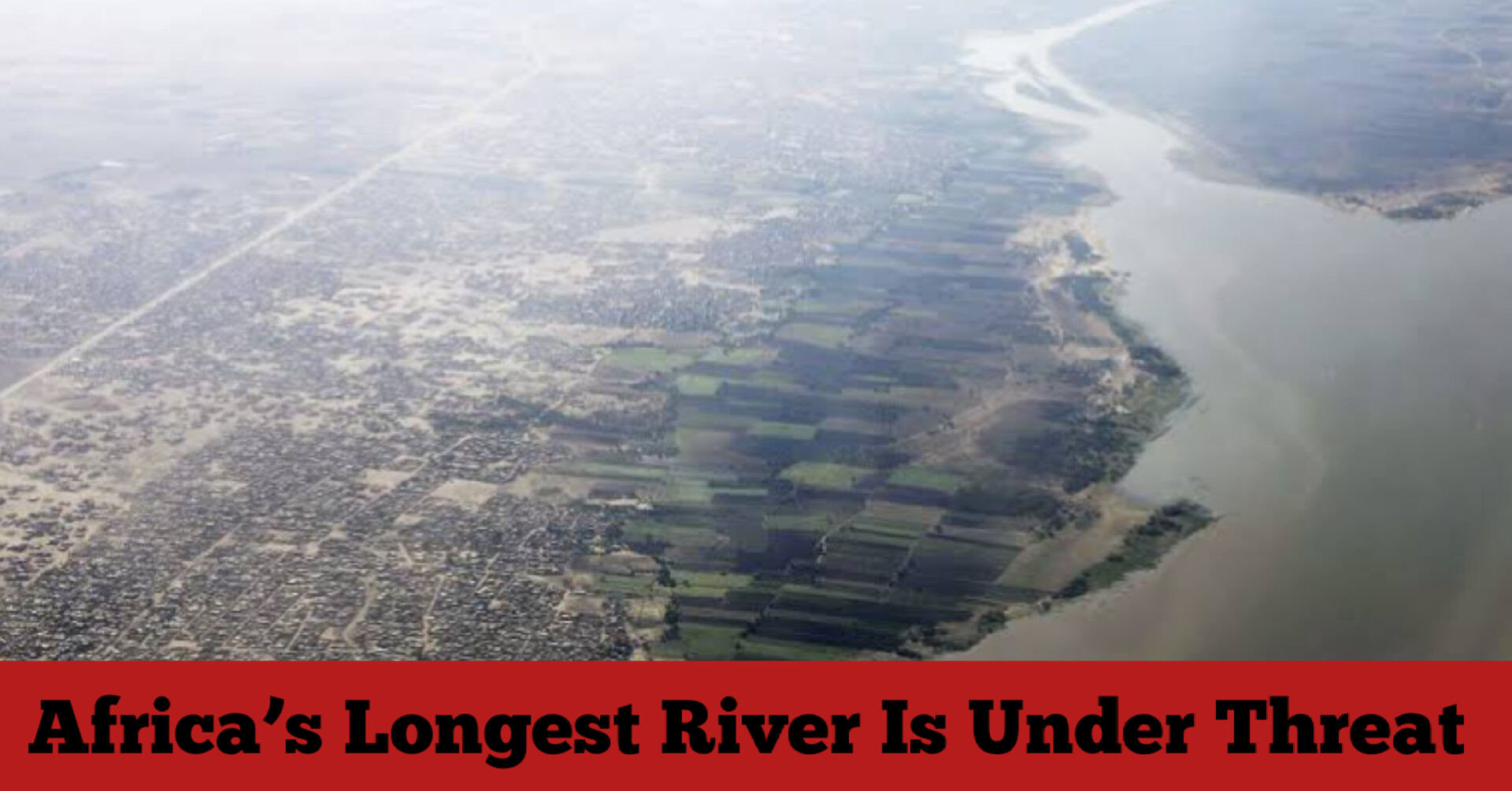Africa’s longest river – The Nile – is under threat. It’s essential for millions of people, including in Sudan.
But it could vanish due to factors including rising sea levels resulting in saltwater intrusion downstream.
Global warming and misuse of the water source by humans are adding are also causing concern for it’s future.
Ahmed Abakr has spent decades growing vegetables and grains near the River Nile in Sudan’s capital.
The continent’s longest river is essential for millions of people.
“I’ve been living by the Nile for my entire life, my occupation is farming and it’s my grandfathers occupation too, the Nile is our source of living and we don’t have anything else to do,” the 85-year-old says.
Global warming and misuse by humans now jeopardise the future of the world’s second-longest river. The flow of the Nile has fallen from 3,000 cubic metres per second to 2,830 in the past five decades. This drop impacts people Nile basin residents like Ahmed Abakr.
Agriculture now is not like before, water levels are changing every year which impacting my crops, I take longer time and I use plumbers in order to irrigate the crops which also needs gasoline and it’s added cost to my crops.”
Water expert Ahmed Almofti predicts eve more serious problems are around the corner: “With the expected loss of water for environmental impacts, another issue is the increase of population against the current Nile quota, that means an overuse of Nile water and an increase of misusage are expected which threatens the future of this River.”
A lack of rainfall and increased droughts expected in Africa means river flow could fall by 70 percent by 2100 according to United Nations forecasts.
It’s predicted there could be a 75% loss of available water per local resident.
In 2010, five upstream states signed a Cooperative Framework Agreement. The text outlines principles, rights and obligations for cooperative management and development of the Nile Basin water resources.
Experts believe the river can only be saved if the countries it passes through commit to better joint management and sustainable development policies.
Source: africanews.com




